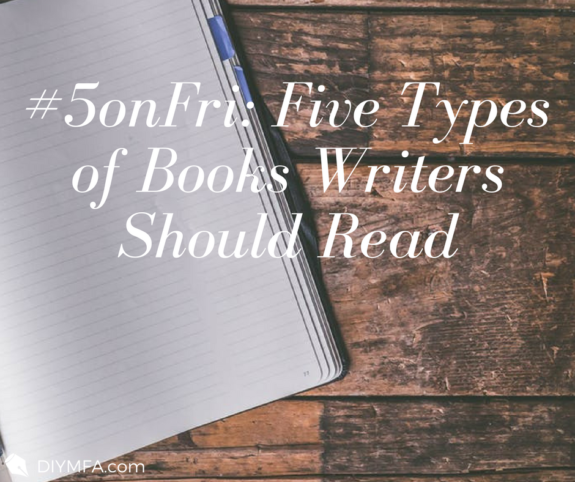Harry S. Truman said, “Leaders are readers.” I don’t consider myself a leader; not really. I’ve always considered myself a follower. But the Lord has been hammering it into my big skull lately that leaders are just ordinary people with a little bit of influence. If you write, and anybody—I mean, anybody, even if it’s just your mother—reads your writing, then you are influencing someone. That means you’re a leader.
There are four kinds of books you should read to improve your writing: craft books, contemporary books, research books, and best of the best books. A tool to help with all of these is a tracker.
1) Craft Books: How to Write
Always have a mindset to improve your writing. Humility is the key to improving; otherwise, you’ll never know you need to improve. I strongly recommend that you keep at least one craft book in your rotation every couple of months to remind you what to look out for in your own writing.
I completed a Humanities major in college, which included an English minor. I even took Advanced Grammar and Composition and aced it (barely). But after a few years of not writing formally, I couldn’t believe how much I had forgotten! Craft books can include anything that tackles the task of writing:
- How to Write
- How to Edit
- Writing Prompts
Here are some examples I recommend:
- Style: 10 Lessons in Clarity and Grace by Joseph M. Williams
- Elements of Style by Strunk & White
- The Story Grid by Shawn Coyne
2) Contemporary Books in Your Genre
Read what’s selling right now. I’ll admit that this is one area I still struggle with. I read Christian Romance growing up and in college, living on campus with a huge library. However, once I moved away, I live too far away from the nearest library to go often, and my budget to spend on reading has been almost nil.
But I kept hearing: “I can’t believe how many writers don’t actually read in their genre!” I decided I had better stay in the know about current reading trends. Enter the free and $0.99 ebook stores. Aw, yeah.
For example in Christian Romance, I read:
- Linore Rose Burkard
- Lynnette Bonner
- Katherine Reay
- and I have in my TBR pile a slew of new-to-me authors
3) Research Books: information on your subject
You’ll need to gather information about subjects in your WIP. This would include nonfiction about WWII if you’re writing a historical fiction set in the early 1940s. You might also want to read a biography on Thomas Edison if a major character in your story is an inventor.
Not every genre needs this as much as Historical Fiction or Documentary or Memoir. Sometimes articles and blogs are enough research. For example, my first book included a scene where the main character talks to a therapist on the phone. I needed to research medical terms. I found all my research online, though.
Even if you don’t finish an entire book, any research for your story counts. (Just be careful not to spend so much time down the research rabbit-hole that you get sucked into to never finishing your story. Believe me, it happens.)
4) Best of the Best: authors you aspire to emulate
Look for inspiration from the best of the best, but search for their methods; don’t let yourself get lost in the story. Determine even before you start reading that your whole purpose is to nitpick. Pick out what worked for you: word choice, point of view, setting versus action, when they introduced main characters, etc. I find that it helps me to have a notepad; it reminds me to be writing something down. So I need to be mindful of what it is I need to be writing down.
For me, the best of the best include:
5) Trackers: how to keep track of your next books
Start a challenge and make a goal you can track. Okay, so this isn’t technically a category of book to read. But you will need some way to keep track of which books you want to read next and what you’ve already read.
Goodreads is a wonderful place to do this. For example, I’m a member of Christian Fiction Devourers. T he admins of the group set up yearly and monthly challenges for us. We can join them or not as our schedules allow. If there is not such a group for your genre, create one.
If you’re a writer, you’re a leader. If you’re a leader, you need to read. But read intentionally with a specific purpose for every book.
Ask yourself:
- Will this book help me write?
- Will this book give me idea of the current market?
- Will this book provide me with valuable information I can use?
- Will this book inspire me to emulate a great writer?
- Will this book be trackable?
Join the conversation: What one book can you add to your To Be Read pile that fits in one of these categories, and how will it will help you?
Lila Diller is outnumbered by a houseful of males: husband of 15 years, two energetic boys, and a hyper dog. She loves to help readers create romance in their marriages and in their spiritual walks with Jesus. You can find her at liladiller.com.







